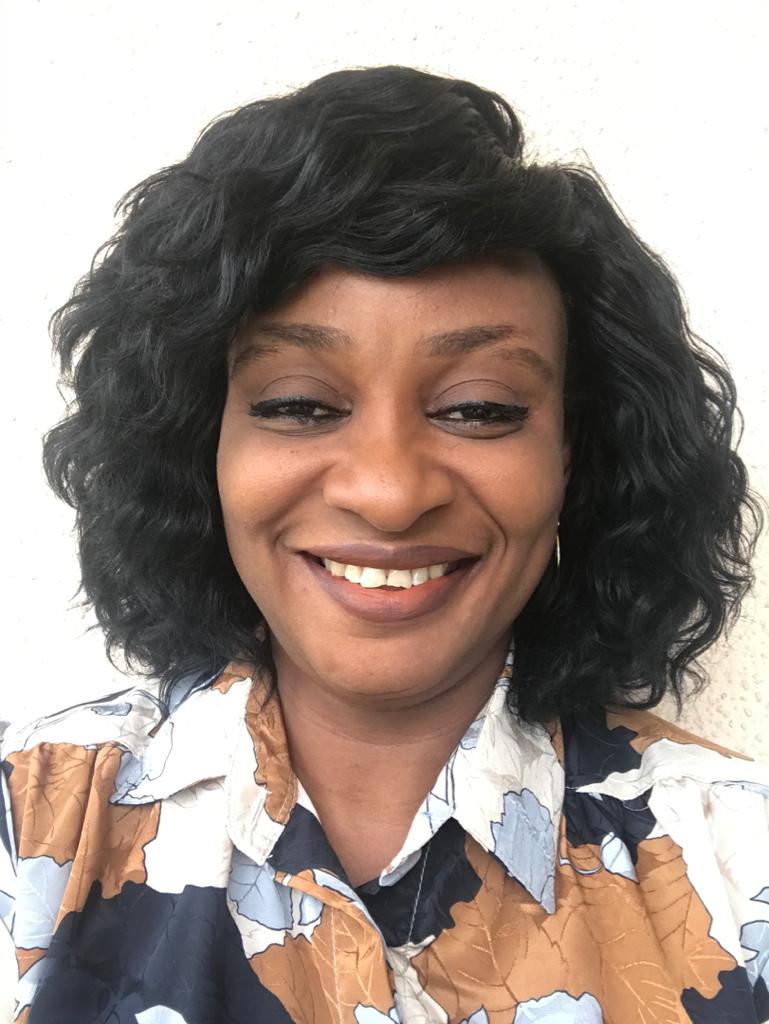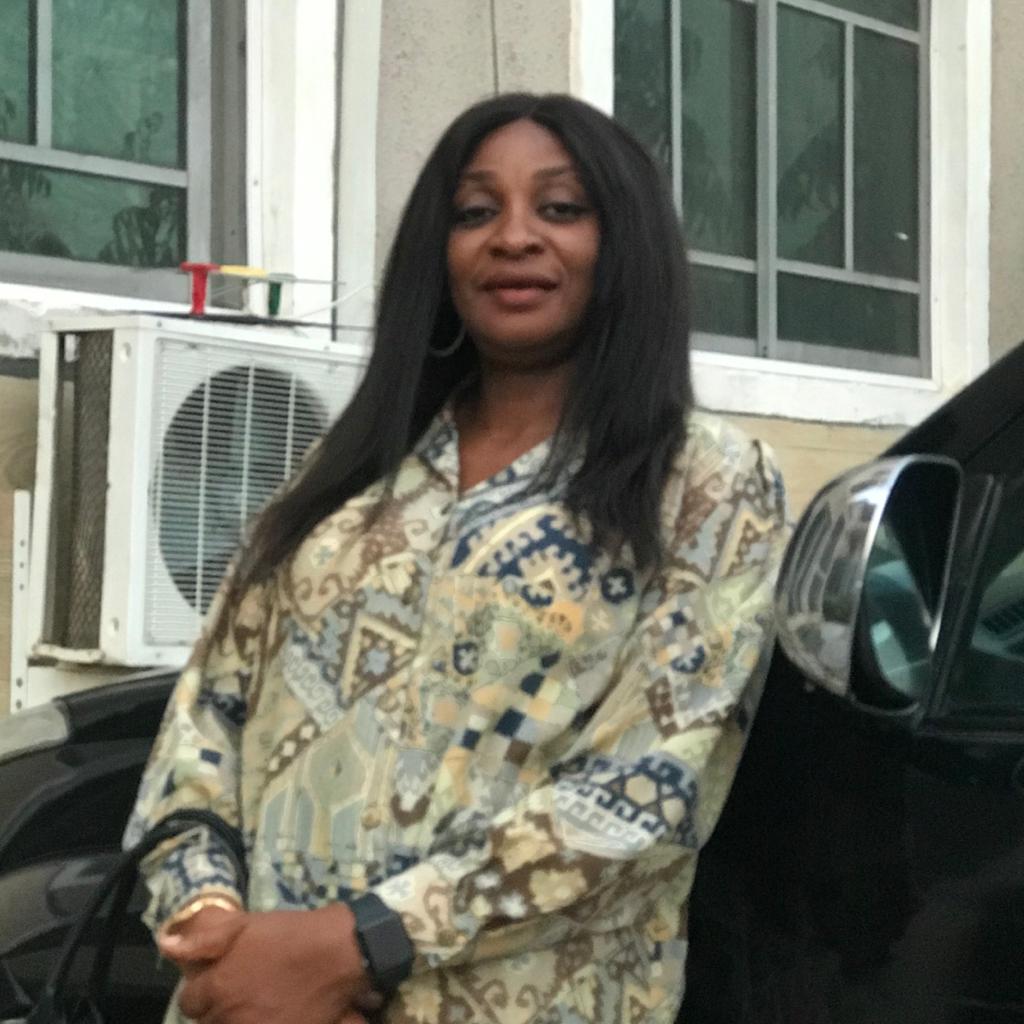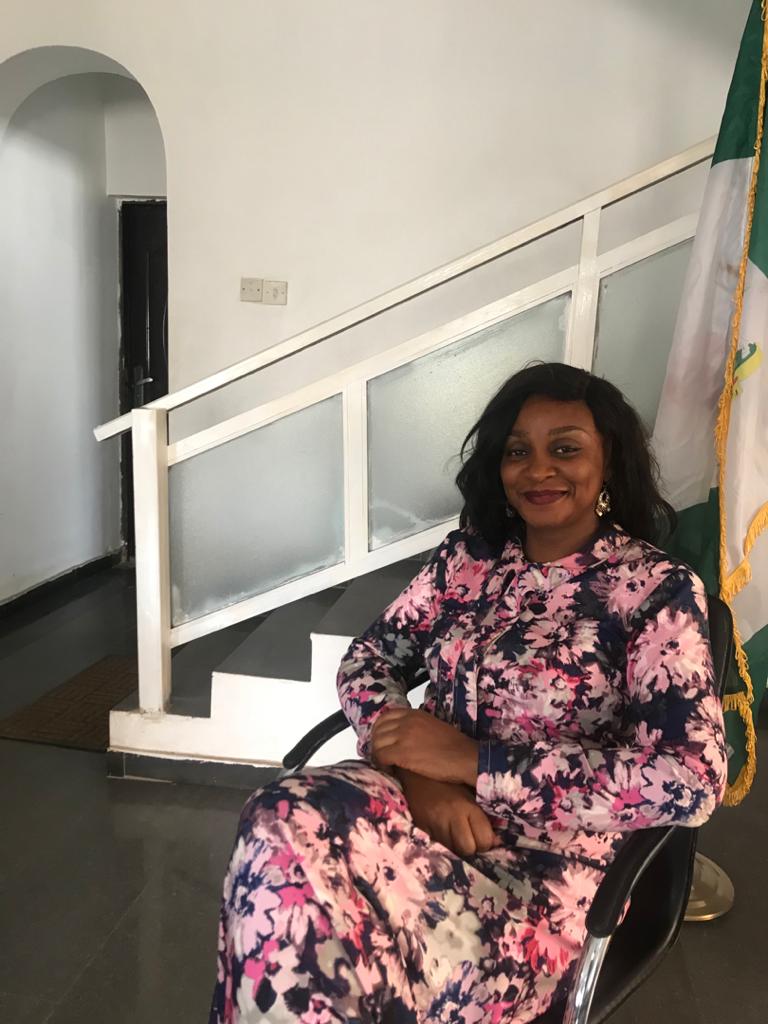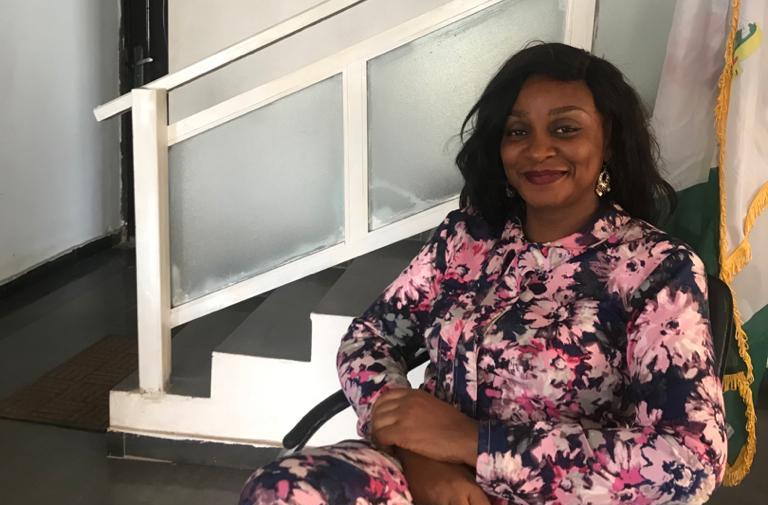
Juliana Abude-Aribo is the Executive Director of Legislative and Policy Initiative for Sustainable Development (LISDEL). LISDEL is an independent, non-profit organisation committed to safeguarding a reality that translates to a decent quality of life for Nigerians. Juliana is a project management specialist with good experience in health systems strengthening, healthcare financing and private sector partnerships. One of her strongest points is the ability to convene development partners and multi-sectorial actors to collectively agree a common objective, mobilizing much needed resources and enabling partnerships. Some of these efforts have achieved some very important goals, some of which are highlighted in this profile. She is quite adept at diplomacy, analytical reasoning and negotiation, with remarkable technical resourcefulness. She holds a Masters in Legislative Studies from the National Institute for Legislative and Democratic Studies in affiliation with the University of Benin, Nigeria.
Her experience in healthcare financing reform includes mobilizing additional domestic resources for Reproductive, Maternal, Newborn and Child Health; and sustainable Financing for HIVAIDS and TB through the public and private sectors. She is versed in effective approaches to promote reforms to State Governments and Legislatures and her work in this area facilitated the establishment of the Legislative Network for Universal Health Coverage and subsequent inclusion of the Basic HealthCare Provision Fund in the 2018 Federal appropriation for the first time since the National Health Act was enacted. Her work also contributed to similar achievements in a number of states; propelling the establishment of legal frameworks in over 15 states to enable access to the BHCPF and expansion of affordable healthcare services to Nigerians through health insurance/contributory health schemes. Similarly, she facilitated inclusion of a budget line for the coordination of malaria response in Nigeria by the National Malaria Elimination Programme (NMEP), the first since the establishment of the NMEP
Juliana speaks exclusively to Green Savannah Diplomatic Cable on the impact of LISDEL
Excerpts

Why did you set up LISDEL, What was the motivation?
Let me say this, It was set up by our President /Chairman, the former Chairman Senate Committee on Health, Dr. Olanrewaju Tejuoso. This is the story, when we started the Legislative Network for Universal Health Coverage and engaged Dr. Tejuoso, he was excited because nothing like that had ever happened. He immediately keyed into it and started to lead it. Dr.Tejuoso and Hon. Usman Muhammad, former Deputy Chairman House Committee on Health Care Services were the two that led the process for the establishment of Legislative Network for Universal Health Coverage. They were both at the 8th Assembly. Towards the end the 8th Assembly, Senator Tejuoso became worried about sustainability because usually not all politicians are interested such. For them, it’s a little bit of work because they have their constituents to respond to and it is difficult for the electorate to see the long term benefits of such kind of policy change. The populace always responds to what they can see physically. So, when he was about to leave, incidentally, the project that began the Legislative Network for Universal Health Coverage called Health Finance and Governance Project funded by the United States Agency for International Development was about to round up . Although, we had different partners involved in the process, we tried to reach out to see who would take up that coordination function, but they didn’t seem to be too interested and the Senator was a bit worried that the initiative might die. We were able to get Basic Health Care Provision Fund into the budget for the first time since the National Health Act was signed into law in 2014, so he didn’t want it to die. Therefore, he conceived the idea of starting up a not –for-profit organization that will at least be there to help the transition process to the 9th Assembly. At that time, he wanted to move into other things and might not return the Senate; that was the idea. That was the motivation behind him setting up LISDEL. When it was incorporated, it was incorporated as Legislative Advocacy Initiative for Sustainable Development Goals, but it’s been changed a bit now. We had to go back to Corporate Affairs Commission to change the name to Legislative Initiative for Sustainable Development. Now, it is not just advocacy, but system strengthening towards national development and wellbeing of Nigerians. That’s the motivation
Your organization was conceived in 2017, would you say that you have made appreciative impact?
Yes, certainly we have. It was conceived in 2017, but it was incorporated in 2018. We couldn’t take off in 2017 because he was still the Chairman and couldn’t be seen as owning an organization. The Process of incorporation began but it didn’t materialize until June 20th, 2018. We have made great impact. Let me not forget that when it was incorporated, three of us were made Directors, the Senator, Dr. Abdulgafar Alawode and myself basically because we sort of stirred the process of the Legislative Network for Universal Health Coverage at that time. That was the initial idea behind setting it up. But we have gone beyond that to just ensuring that the Legislative Network for Universal Health Coverage continues, we have started to diversify into getting grants and implementing projects outside of the Legislative Network for Universal Health Coverage. For instance, we just had a workshop on Health Security. That is one of the activities from a grant that we are currently implementing. It is funded by an organization based in the US called Global Health Advocacy Initiative in collaboration with another organization called Resolve to Save Lives. It’s a small grant, but it’s helped us make some impacts in the COVID-19 space. For instance, in Kano State, we were able to ensure that they have a budget line for epidemic preparedness and response; we are able to work with the Legislature and civil society organisations and Executive. They never had that before. We were able to get about N300Million into the Kano State budget for health security; epidemic preparedness and response. That is commendable for an organization that just started in 2018. Remember it’s like we just had one year to do some work before COVID-19 pandemic. Wevirtually lost all of 2020, although we were still able to do some works. We made a lot of impacts. The Basic Health Care Provision Fund story in Nigeria today cannot be written without a mention of our name.

Your vision is Human Capital Development in three critical areas of the economy namely health, education and agriculture. Why the choice of these sectors?
It’s really not just those areas, we intend to diversify to everything that meet progressive national development for Nigeria, eventually it may mean security or infrastructure, but, we are just starting. Health was a pilot for us, education and agriculture next. The reason why three areas are so important is because of their contributions to Human Capital Development; the wellbeing of an individual to contribute meaningfully and productively to the economy of the nation and towards economic development. That’s what it means basically. You might want to ask how health affects economic development. It is not hard to understand .Look at what is happening in the world over, how the pandemic has crippled the economies of nations. Things we never thought were possible. It exposed a lot of things; how vulnerable countries could be. That is a good example of what health can do to the economy of a nation. Then you might ask, why education? Again, see what’s happening in Nigeria. Education wise, the system has failed. It’s not that we don’t have the resources; it still boils downto lack of accountability. Why are we sending our children to private universities in Nigeria and why are we sending them abroad? We are doing this because that which is being provided by the government is not working. The challenge is not everybody can send their children to private universities or outside the country to go and study. So what happens to those who can’t afford private schools? Because of incessant strikes, they lose quality education and you have all sorts of fraternities springing up due to lack of accountability? Naturally, if you are well educated, no one will need to tell you that when you are sick you should go to the hospital or that it is important to maintain your health. Education opens your mind, it opens up your understanding, and the way things should be. Why Agriculture? This is because we are linking it to nutrition of children under the age of 5 and pregnant women; having the right kind of food to eat. What are we producing? There is this food substance that is called Ready- to -Use Therapeutic Foods that they use to treat malnutrition in children; we import it because they said that our groundnuts are not good enough. Therefore, we need to start looking towards adequate quality food production.
As a development person who knows the country well, how would you describe the quality of life of an average Nigerian?
Our Human Development Index puts us at 0.36 percent as at 2018, I think. That is basically the quality of life that we live. That is for the whole of Nigeria. As far as the world is concerned, that is how they see Nigerians. It does not matter whether one person is doing well, once there is an average, that is how they see you and that is how we are all qualified. That is a very poor quality of life, very poor wellbeing; people are just struggling to survive. We really need to work on our Human Development Index.
What is LISDEL doing to keep the National Assembly on its toes particularly on the issues of health and Human Capital Development?
Like most politicians, the National Assembly or the Legislators have a lot to contend with. They say until you wear the shoe, you will not know where it pinches. It’s easy to be outside that circle and say they are not doing this or that, but they have a lot on the table, particularly constituency needs . So I am careful to judge. Mine is not to judge but to identify where the problems are and then see if collectively a number of us can provide solutions to resolving those challenges. That is what we have been doing under LISDEL. However, they need to realize that for health, education, and others, if you don’t apply your legislative roles, your oversight role, your transparency role to make the system work, then you may not be able to hold yourself accountable to the electorate. When you go on oversight, what do you do with the outcome, how do you hold institutions and organisations accountable to ensure that they do those things that you recommend? Their oversight function holds the Executive and the public to account but in the same way, it’s an avenue of holding themselves accountable. You have CSOs; you have media, take them along when you go for oversight.
How do you think the three tiers of government can work together to bring about the desired change in the health sector?
They have to lay aside the mentality of saying this is my area don’t porch. That is the whole idea of Human Capital Development mentality. We have to be able to come to the table, all of the sectors to say how we can pool our resources to ensure that the health sector is working at the same time education is working and at the same time agriculture is working.
What should Nigerians expect from LISDEL this year?
They should expect accountability and responsiveness for the health sector; facilitating of the systems that will improve adequate domestic financing for the sector to improve their services .This will mean advocacy, holding all the leaders even the Legislature to account and holding them accountable for responsiveness to issues in the health sector. Our focus this year will be health sector, improving primary healthcare and activities of Basic Health Care Provision Fund as it relates to strengthening Primary Healthcare in Nigeria .That is our focus. For education, we are going to be engaging and having national conversations around setting an agenda for the Legislature and the Executive to improve education, same with Agriculture. Let me say that in all of these, we will collaborate with CSOs, NGOs and the Media.










